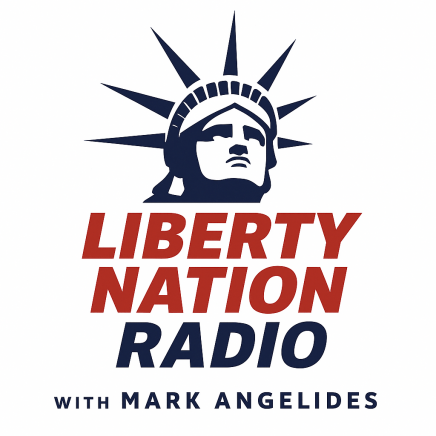For the last decade, the paper tiger feasted on such astronomical portions of debt that it became addicted to red ink. This diet triggered short-term growth for the world’s second-largest economy, but it failed to achieve eternal prosperity. Instead, trader wars, popped bubbles, and a public health crisis exposed the red dragon’s poor health. The only solution for China was to gorge on even more debt by feeding the entire nation cheap money, inexpensive loans, and easy credit. Fiscal and monetary policymakers are pledging to embark upon a credit crusade to rescue Beijing from becoming a footnote in future college textbooks that teach students how China was once an economic force.
Buying On Credit

PBoC Governor Yi Gang
The People’s Bank of China (PBoC) wants to expand credit by about one-fifth this year to cushion the economy and support growth in the fallout of the Coronavirus. PBoC Governor Yi Gang said in a recent speech in Shanghai that the central bank would facilitate a 19% increase in bank loans and a record special-purpose bond issuance. In total, Yi believes social financing – aggregate financing to the real economy – should top $4.2 trillion this year. In March, it rose to an all-time high of $732 billion. Last year, Beijing created $3.62 trillion in new credit.
But while officials could flood the market with cash, the central bank head warned financial institutions that they might need to concede about $200 billion in profits this year. The PBoC intends to lower interest rates, use additional monetary policy tools, and slash banks’ fees. Yi reiterated comments made in May that the institution would employ more aggressive measures in the second half of 2020 to ensure China’s reset succeeds.
PBoC officials have already been following through on their pledges by injecting short-term funds into the financial system, reducing the cost on loans, and acquiring $140.2 billion in banks’ microloans. The body is also expected to slash the reserve requirement ratio – the amount of money banks are mandated to hold in reserves – and utilize its re-lending policy to maintain high liquidity levels. The RRR has already been cut four times this year. Why all this support? To encourage banks to lend more to borrowers.
“In the second half of the year, we expect monetary policy to keep ensuring reasonable and ample liquidity. We need to pay attention to the side effects of the policies, keep the total amount appropriate, and consider in advance good timing for an exit from the policy tools,” Yi said in his prepared remarks.
Is the next stop subzero interest rates and debt monetization? China says that it would neither institute negative rates nor monetize the debt. However, Beijing is already indirectly engaging in these destructive Keynesian mechanisms. First, the PBoC is buying a portion of the $140 billion in “special government bonds,” which are unique financing measures that raise cash for a specific policy without weighing on the budget deficit. Second, according to Sheng Songcheng, a former PBOC official and an influential commentator on policy, the nation is already grappling with de facto negative rates, since the one-year deposit rate is lower than inflation.
Goldman Sachs published an in-depth analysis regarding China’s recovery tactics. Its conclusion was to anticipate greater easing that may or may not be comparable to the rest of the world’s unprecedented quantitative easing (QE) efforts. Whether this consists of doing more of the same or taking it to another level remains to be seen. Still, the raw data and the barrage of statements suggest the printing press and credit will continue to be the foundation of the Chinese economy moving forward.
Not everyone is convinced this will breed success. The yield on the 10-year government bond surged to a six-month high of 2.9%, while the benchmark repo figure recorded consecutive gains. In other words, financial markets are signaling tighter liquidity conditions.
Racking Up Debt
 The Coronavirus-induced financial crisis prompted the central government to engage in massive stimulus. Unlike the big bang spending of the 2008 economic collapse at the federal level, local governments appear to be leading the binge this time around, particularly in infrastructure. Guangzhou, for instance, approved 73 major projects worth more than $25 billion. Shanghai has committed about $38 billion over the next three years on new-generation networks, intelligent terminals, and other tech-related investments. But all these outlays will be paid for with borrowed money as provincial and municipal governments tap the bond market to cover these outlandish expenditures. It is going to be hard for these jurisdictions to repay the money. There is already talk of a bailout from either Beijing or the PBoC in the coming years. Ultimately, the local bond binge might metastasize into the next fiscal crisis on the other side of the pandemic.
The Coronavirus-induced financial crisis prompted the central government to engage in massive stimulus. Unlike the big bang spending of the 2008 economic collapse at the federal level, local governments appear to be leading the binge this time around, particularly in infrastructure. Guangzhou, for instance, approved 73 major projects worth more than $25 billion. Shanghai has committed about $38 billion over the next three years on new-generation networks, intelligent terminals, and other tech-related investments. But all these outlays will be paid for with borrowed money as provincial and municipal governments tap the bond market to cover these outlandish expenditures. It is going to be hard for these jurisdictions to repay the money. There is already talk of a bailout from either Beijing or the PBoC in the coming years. Ultimately, the local bond binge might metastasize into the next fiscal crisis on the other side of the pandemic.
Paralysis
If a second wave of COVID-19 occurs and paralyzes the Chinese economy, then fasten your seatbelts because it is going to be a bumpy night. China is facing an all-out assault, ranging from a possible currency crisis to international trade strife. Perhaps the reason for China forgiving some of Africa’s debt is an attempt at good karma and preventing its downfall. If the U.S. ever wished to take advantage of the situation, now might be an opportune time since Beijing could not risk upsetting its largest customer. China may think that it is different from the rest of the world by instituting its brand of QE, but it is still intervening with a strategy that keeps the nation on life support instead of revitalizing the economy. The plight of China will contain bouts of pain, followed by even greater fits of unbearable agony.
~
Read more from Andrew Moran.






